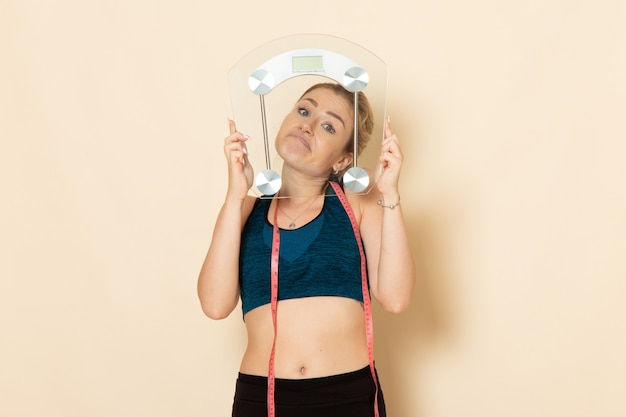
When it comes to losing weight, it’s common to think that counting calories and eating less is the key. However, Terry Fairclough, a well-known personal trainer and co-founder of Your Body Programme, suggests otherwise. There’s a lot of debate about what the best diet for weight loss is. Should we focus on calorie counting, a low-fat diet, a high-protein diet, or try intermittent fasting? How often should we eat?
Although a significant calorie deficit can lead to weight loss, it doesn’t guarantee fat loss, which is what most people aim for. In today’s world, many of us consume more calories than we need, so some might benefit from a slight calorie reduction. But drastically cutting calories isn’t the solution.
Here’s why: when you eat, your body turns carbohydrates into glucose, a type of sugar that fuels your cells. If you don’t use this glucose right away, your muscles and liver store it as glycogen, which is made up of linked glucose molecules and water. Cutting calories often means losing stored carbohydrates and water—not fat. Over time, a severe calorie deficit can trigger the body to hold onto fat while burning protein instead.
Protein is essential because it helps the body burn more fat while at rest, so it’s crucial to consume enough calories including all macronutrients: fats, carbs, and protein. Contrary to popular belief, fat is an important and long-lasting energy source. It fuels exercise, and eliminating fat from your diet can actually deprive you of the energy needed to burn unwanted body fat.
Additionally, reducing calories and macronutrients too much can lead to nutrient deficiencies, impacting the immune, liver, and digestive systems, slowing down metabolism, and causing other health issues. Fatigue, malnutrition, and hormonal imbalances are just a few problems that can arise from under-eating. Stress from a low-calorie diet releases cortisol, a hormone that can initially cause weight loss but eventually leads to fat gain by slowing down metabolism and promoting fat storage around the belly.
Under-eating can affect digestion, limiting the absorption of essential nutrients, which impacts weight loss and overall health. Poor sleep can also result from a drop in blood sugar levels, further affecting your immune system, productivity, and potentially leading to weight gain.
Even bodybuilders who restrict calories to get lean have to be careful when adjusting their diets, as it can lead to health problems. If calorie cutting becomes too extreme, your body might enter a famine mode, storing everything as fat when you eat above your calorie limit.
Ultimately, eating the right amount of calories, carbohydrates, fats, and proteins specific to your body type, goals, activity level, height, weight, and age is crucial. At Your Body Programme (YBP), we help people determine their calorie needs based on these factors. It’s about healthy, balanced nutrition—ensuring plenty of lean proteins, healthy carbs, and fats to keep your body functioning optimally and catering to your individual needs.
Incorporating lean proteins like chicken, eggs, and fish, along with vegetarian options like pulses, legumes, tofu, and tempeh, is key. Healthy carbs from fruits, veggies, quinoa, and whole grains, along with good fats like avocado and nuts, should form part of your diet. By focusing on balanced nutrition, you can help your metabolism stay active and support your overall health.